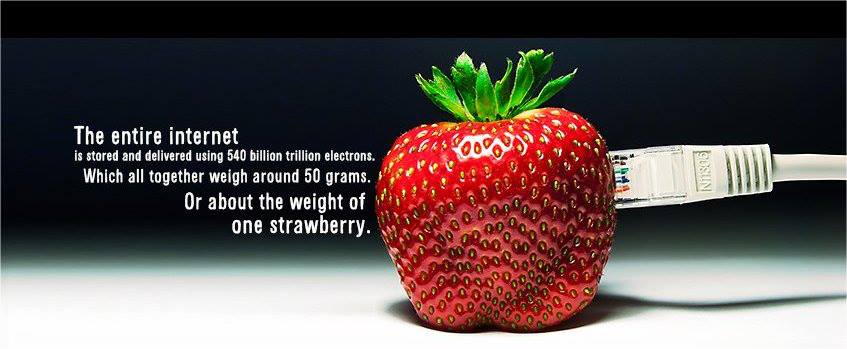

The internet has increasingly become a large part of our lives, especially in the past decade. It’s hard to deny. At the end of 2012, there were about 17 billion devices connected to the internet (yes, billion). These numbers are staggering, even when compared to other technologies. For starters, it took four years for there to be 50 million devices connected to the internet. If you think that’s a long time, it took TV 13 years to reach the 50 million mark. But don’t feel too bad for the small shrines we have set up in our living rooms and bedrooms, because it took radio *38 years* to hit the same 50 million mark.
17 billion devices is nothing to sneeze at. That equals about 2.5 devices for every man, woman, and child on this planet. Of course, not everyone has two devices. Some have more. I have 4 that I use regularly, an iphone is just one example. Can anyone honestly think of the last time they did not have easy access to the internet for an extended period? Even for as little as a day?
Some people even go through withdrawal symptoms when they don’t have access to the internet. I know I feel a certain kind of claustrophobia when I don’t have my phone on me. I know, I know… First World problems… But I’m writing this article today because I have a really odd question to ask: With how big and important to us as the internet is… How much does it weigh?
It’s hard to think of the internet and ask how much it weighs because most people assume that the internet doesn’t physically exist. There’s nothing tangible about it. It’s just information, nothing you can touch. Right?
Wrong.
The internet runs on electricity, which is comprised of electrons, and electrons have mass. So, we actually can weigh the internet. But, we have to remember we’re dealing with electrons, very small particles that weigh hardly anything, 9.10938291×10^−31 kilograms.
In the 24 October 2011 issue of the New York Times, University of California professor of computer science John D. Kubiatowicz answers a question posted about an e-reader gaining weight when loaded with books. E-readers like Kindles use a flash memory composed of flash memories that trap electrons that distinguish between a 1 or 0 for binary code. While the number of electrons doesn’t change, the trapped electrons are in a higher energy state. A conservative estimate would be 10^−15 joules of energy per bit. If you were to load a 4 gigabyte e-reader with books, the energy difference from when it was empty would be 1.7 x 10^-5 joules. When you plug that into Einstein’s equation E=mc^2, you get an increase of weight of 10^-18 grams, or simply 0.000000000000000001 grams. Mind numbingly small weight difference. The difference in weight is one hundred million times bigger when you charge the battery of the same e-reader… or when you whip the screen free of dust.
That’s just an e-reader filled with books, so let’s get a little bigger, the entire internet kind of bigger. The entirety of the internet is connected in a web of servers. The data packets you send from your computer reading this article gets sent to your router, which goes from server to server for you to get this article from the internet to your computer. There are about 75 to 100 million servers operating around the world to make the internet work.
All those servers combined generate about 40 billion watts of electricity. We also know that an amp, the movement of electricity, is about 10^18 electrons per second and since we know the weight of an electron, we can use all that to calculate that the entirety of the internet, every e-mail you’ve ever sent to a co-worker, every meme you’ve sent to a friend, every website in existence (from children’s websites, to porn sites, to top secret restricted government pages). Everything you’ve bid for on eBay, your farms on Farmville, all your internet games like Pokemon and Battlefield. The entire internet weighs about 50 grams, the same as a plump strawberry.